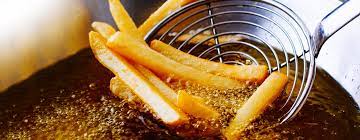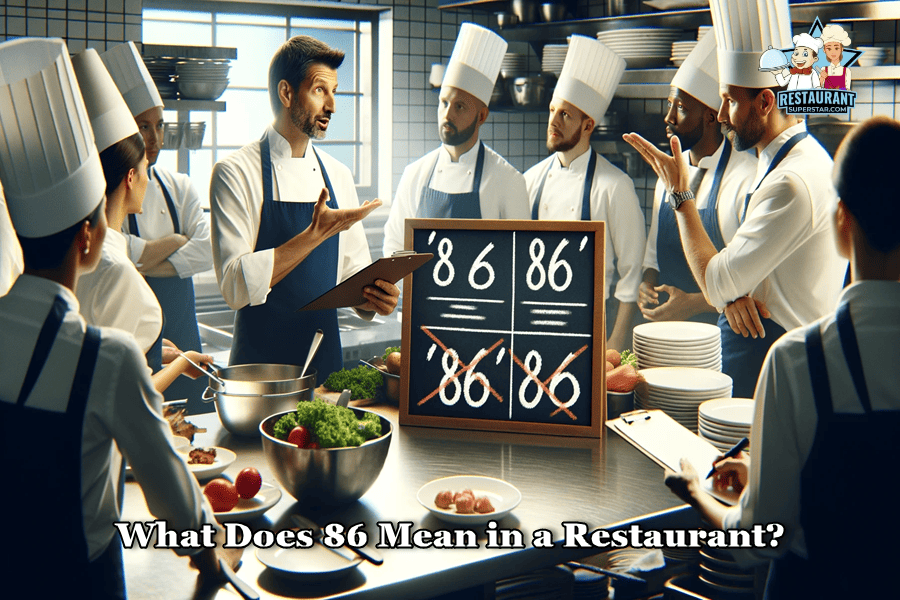How Often Does a Restaurant Change Fryer Oil?

If you are wondering How Often Does a Restaurant Change Fryer Oil you are in the right place. In this article we will cover this question as well as many other important questions about restaurant fryer oil.
The frequency with which a restaurant changes its fryer oil is directly related to how often the oil is used. A busy restaurant’s oil will be changed every day or two, while a less busy establishment’s oil may last a few days. It’s time to replenish the oil when it turns a dark amber color.
Do Restaurants Reuse Frying Oil?
It is perfectly safe to filter and reuse deep-fry oil. It’s fairly unusual for certain quick-service restaurants to filter the oil daily and replace it once a week. Of course, after so many uses, it starts to taste a bit “odd.”
Regardless of the color of the oil, some fast-food restaurants replace their (canola) oil and clean out their fryers twice a week. The fryers include an in-built filtering system that must be cleaned. This procedure is carried out by hand, with particles being removed and the vats being brushed quickly with suitable levers. This is done three to four times every day.
How Many Times Can You Use Oil In a Deep Fryer?
Fryer oil must be replenished after using it between 8 to 10 times. After each use, remove the oil from the fryer, and store it away carefully until you use it again. Store the filtered oil in a cold, dark location until ready to use.
Can I Leave Oil In My Deep Fryer?
Are you wondering whether you may leave the oil in your deep fryer? Yes, you may leave the oil in your deep fryer. While it is ideal for keeping oil outside of your fryer when not in use for extended periods, you may leave the oil in your deep fryer for short amounts of time.
How Can you tell if deep fryer oil is bad?
Anyone can tell whether the oil is excellent fryer oil by looking at it—soupy yellow color with a golden tinge. Bad Oil, however, becomes a deeper shade of yellow. The texture becomes a little grittier and may even take on a soapy appearance at times.
Your fryer oil is rotten if you observe foam, the color is noticeably deeper, or it has an unpleasant smell. The color and flavor of frying Oil gradually deteriorates as it moves from excellent to terrible.
It takes a while for cooking oil to become rancid.
Here are the stages:
Foam or frothiness on the surface of the oil (when hot)
The color will be significantly darker
It will smell bad
How Often Does a Restaurant Change Fryer Oil?
How long can you keep used fryer oil?
It depends on how often the fryer oil is used. It can take days or weeks instead of hours or days in larger places. This is because restaurants have filters that run at least twice a day and filter powder that removes the bad stuff.
How often do you need to clean a deep fryer?
The best thing to do with a deep fryer is to clean it at least once a week or more often if the volume is high. Let it cool after cooking, scrub it out with a wire brush and rinse it thoroughly. You can also soak the whole thing in hot water to loosen any food stuck to the bottom.
Restaurant Cooking Oil Disposal
Are you looking to dispose of your commercial kitchen’s cooking oil?
To begin, you must correctly collect all of the oil waste. If you still dump part of your waste cooking oil down the drain, you should stop doing so as soon as possible. The grease you pour into the pipework will accumulate over time.
The inappropriate disposal of industrial grease is a significant cause of sewage clogs. However, that is not all. Even once these obstructions have been removed, you do not want used cooking oil to wind up in wastewater. Used vegetable oil may seem an “organic” product, but it is not good for the environment.
The chemical structure of these oils is altered throughout the cooking process. When frying oil combines with other molecules in wastewater, you may acquire toxins that endanger animals and people’s health.
Invest in a grease trap to collect leftover cooking oil. This device keeps fats, oils, and greases (also known as FOGs) from entering sewers or septic tanks.
Grease traps are designed to take advantage of the fact that oils and water do not mix. The device’s sophisticated components remove the FOGs while enabling water to travel through the trap without trouble.
The grease trap pumping method removes all the discarded cooking oil from your restaurant kitchen. This procedure is performed before transferring the collected oils and fats to the processing plant.
How Is Your Cooking Oil Removed?
Every grease trap pumping requires the use of a vehicle equipped with a huge grease tank. A hose connects that tank to your grease trap, and the contents of the grease trap are pushed into the tank.
However, before the truck leaves, the grease removal experts will ensure that no solidified fats, oils, or greases are left within the trap. They will scrape the device’s inside surfaces by hand to remove hardened particles.
Can old fryer oil make you sick?
Bacteria feed on food particles left in used oil if it is not adequately filtered and kept after it cools. Unrefrigerated oil becomes anaerobic, allowing Clostridium botulinum to thrive and produce botulism, a potentially deadly food poisoning.
Oil may be refrigerated or frozen to slow bacterial development. Bad oil includes free radicals, substances that may harm cells, raise cancer risk, and affect the quality of your meals. The good news is that your nose may detect rancid oil.
Can you reuse frying oil after frying chicken?
Yes! You may reuse cooking oil even after frying chicken, vegetables, or battered meals. Allow the oil to cool. Then, skim off any big bits of leftover food or cooked batter. Pour the cooled oil through a filter into a resealable container for future use.
Can you leave oil in a deep fryer overnight?
Yes. By leaving the oil in the deep fryer overnight, you save time and ensure that the fryer is ready to use the next time. Strain it after frying heavily breaded items.
If you possess a deep fryer, you’ve thought about preserving and reusing the oil.
It may be expensive and useless to waste the oil in your deep fryer after each use, especially if you don’t use it often.
The good news is that, notwithstanding your justification, you CAN leave the oil in your deep fryer, and you must ensure that you do it right!
Can you mix old oil with new oil cooking?
Yes, you may mix old and fresh cooking oil. Cooking oil may be reused an infinite number of times but look for indicators of deterioration, such as a murky appearance, foam, or an off-odor.
Consider the smoke point, the style of cooking, whether the components of the combination are solid or liquid, and how your oil mixture will affect the flavor of your dish. Mixing cooking oils are OK most of the time, but be especially careful while deep-frying.
How to filter restaurant fryer oil
Depending on your chosen degree of complexity and expenditure, there are numerous methods for removing impurities from your oil.
Skimming – The most basic kind of filtering is just skimming out crumbs (shown below). This procedure makes it tough to be thorough and reach the crumbs at the bottom. Oil skimming removes crumbs from the oil.
Cone Filter– A cone filter is another low-cost option (shown below). Return the oil to the fryer after passing it through the cone filter into a suitable stock pot.
Filtration Machine – The last and most costly method of filtering cooking oil is to use a machine like the one pictured below. You must get the suitable size filter paper envelope for this arrangement, inserted inside the machine. Using the accompanying wand, the oil is dumped into the machine and cycled through the filter before being returned to the fryer.
Conclusion
In conclusion, oil changes can cost a restaurant hundreds of dollars each month, depending on the size of the fryer. While many owners believe that changing the oil in the fryer once per week is sufficient, most foodservice experts agree that the fryer requires daily maintenance to keep it clean and operating at peak efficiency.
Jeff Smith is a Restaurant Consultant with over 20 years of hospitality experience ranging from server to owner and general manager. He focuses on Restaurant POS technology as well as restaurant marketing. Make sure to check out our world famous restaurant resources resources page for a comprehensive offering of hand picked resources and tools to help your business. You can also check out some of our other restaurant business articles.

